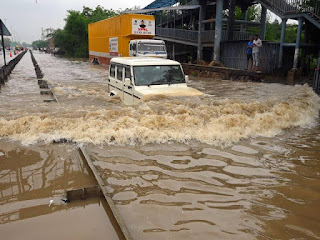Indian Ocean name after india
India has long been an important player in marine trade. Historical Trade and marine Routes. India's strategic location made it a hub for traders, explorers, and travellers since the Indian Ocean served as a significant crossroads for trade routes between the East and the West.
Ancient Civilization and Seafaring: Since the Indus Valley Civilization, Indian civilization has had a long maritime history. Ancient Indian sailors and navigators had a talent for the sea that contributed to the importance of the ocean by establishing trade connections with civilizations throughout the area.
Monsoon Winds and Navigation: In the Indian Ocean, marine navigation relied heavily on the seasonal monsoon winds. Indian sailors developed a skill at sailing these winds, which had a significant impact on trade routes and exploration and increased India's prominence in the area.
European nations tried to control trade routes in the Indian Ocean throughout the colonial era. India's proximity to these routes strengthened its connection to the ocean as it served as the focus of colonial aspirations.
The Indian Ocean continues to be a crucial geopolitical zone in the modern era because of its abundant oil resources, vital sea lanes, and expanding economies along its borders. India's rise to prominence as a regional force strengthens its long-standing ties to the sea.
Marine Biodiversity: A wide variety of marine life may be found in the Indian Ocean, and India's coastline greatly contributes to this biodiversity. The name of the ocean acts as a reminder of India's responsibility for maintaining and safeguarding its maritime ecosystems.
Tourism and recreation: For many years, travellers and water sports enthusiasts have been drawn to India's gorgeous coastline regions. The appeal of India's beaches and coastal attractions is influenced by the name of the ocean.
Cultural References: Throughout history, references to the term "Indian Ocean" have appeared in writing, visual arts, and other forms of expression. It represents India's everlasting ties to the marine community.
Cooperation on a global scale: India continues to take part in a number of multilateral projects that support cooperation, security, and sustainable development in the Indian Ocean region. India's dedication to these initiatives is strengthened by the name.
Future Prospects: As India continues to grow as a global economic and technological force, its role in the Indian Ocean region is evolving. The name serves as a reminder of the country's potential to shape the ocean's future dynamics.
India's important geographic placement at the ocean's northern shore led to the naming of the Indian Ocean after the nation. The name has a long history that goes back to the earliest days of Indian marine and economic activity. India's historical significance as a significant centre of trade, culture, and exploration during many historical eras is reflected in the name of the ocean.






Nyc info
ReplyDeleteNice Blog. Informative!
ReplyDelete